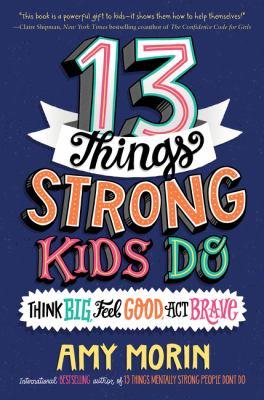
13 things strong kids do : think big, feel good, act brave
The author of 13 Things Mentally Strong People Don't Do empowers tweens, teaching them how to think, feel, and act stronger than ever. Meant for fans of The Confidence Code for Girls, this book tackles mental strength in a relatable way.
Available Copies by Location
| Location | |
|---|---|
| Community Centre | Available |
| Stamford | Checked out |
Browse Related Items
- ISBN: 9780063008489
- Physical Description 315 pages : illustrations ; 22 cm
- Edition First edition.
- Publisher [Place of publication not identified] : [publisher not identified], 2021.
Content descriptions
| Bibliography, etc. Note: | Includes bibliographical references. |
| Target Audience Note: | Ages 8-12. |
Additional Information

Kirkus Review
13 Things Strong Kids Do: Think Big, Feel Good, Act Brave
Kirkus Reviews
Copyright (c) Kirkus Reviews, used with permission.
Emotional strength and resilience are based on habits that can be learned. Psychotherapist Morin draws on her previous work on habits of mind that help adults in their personal and work lives and families in maintaining and growing emotional health. She meets middle-grade readers where they are, recognizing common challenges in young people's lives and presenting tools to develop their abilities to stay flexible, positive, and empowered. Stories introduce situations in which a fear of failure, jealousy, or other uncomfortable feelings cause a problem for a young person and examine techniques--based on anticipation, analysis, and action--that could resolve or prevent a future occurrence of the problem. Reflection prompts support readers' understanding and practice of these techniques. Naming feelings, distinguishing helpful from false anxiety, scheduling times to worry, unplugging from technology, and learning to use calming breaths are among the tools covered. Morin acknowledges that not everything is under a child's control and addresses situations where bullies abuse power, requiring intervention from a trusted adult. Cartoon illustrations feature children with various skin colors and hairstyles. The list of references speaks to the author's research; further reading for young readers would have been a welcome addition. Useful, necessary, positive help for the difficult process of growing up. (Nonfiction. 8-13) Copyright (c) Kirkus Reviews, used with permission.


